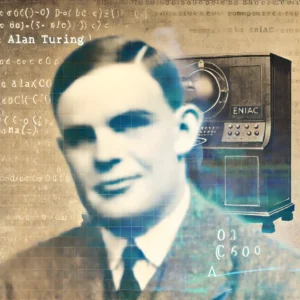The Birth of AI
Artificial Intelligence (AI) began as an idea long before computers were even invented. The concept was simple: create machines that can think like humans. In the 1950s, mathematician Alan Turing introduced the idea of a machine that could simulate any human intelligence, which became the foundation of AI.
 Introduction to Artificial Intelligence (AI):
Introduction to Artificial Intelligence (AI):
Artificial Intelligence, or AI, refers to the idea of creating machines that can perform tasks typically requiring human intelligence. These tasks include reasoning, learning, problem-solving, and understanding natural language. The concept of AI has been around for centuries, long before the invention of computers.
Early Beginnings:
The roots of AI can be traced back to ancient myths and stories about artificial beings endowed with intelligence or consciousness by their creators. However, the scientific pursuit of AI began much later, particularly in the 20th century when the field of computing started to develop.
Alan Turing and the Foundation of AI:
In the 1950s, the British mathematician Alan Turing made significant contributions to the development of AI. Turing proposed the idea that machines could be made to simulate any human intelligence. He is famously known for the “Turing Test,” a method to determine whether a machine can exhibit intelligent behavior indistinguishable from a human. Turing’s ideas laid the groundwork for the field of AI and set the stage for future developments.
The Dartmouth Conference:
In 1956, the term “Artificial Intelligence” was officially coined during the Dartmouth Conference, organized by John McCarthy and Marvin Minsky, among others. This event marked the beginning of AI as an academic discipline. The conference brought together researchers who believed that human intelligence could be precisely described and simulated by machines, leading to the development of the first AI programs.
Early AI Programs and Challenges:
The initial AI programs focused on simple tasks like playing chess or solving mathematical problems. Despite early successes, AI faced significant challenges due to the limitations of computing power and the complexity of human intelligence. These challenges led to periods of slow progress, known as “AI winters,” where funding and interest in AI research declined.
Conclusion:
The birth of AI was marked by visionary ideas and the early efforts of pioneers like Alan Turing. While the road to creating intelligent machines was long and filled with obstacles, these foundational years set the stage for the incredible advancements in AI that we see today.
